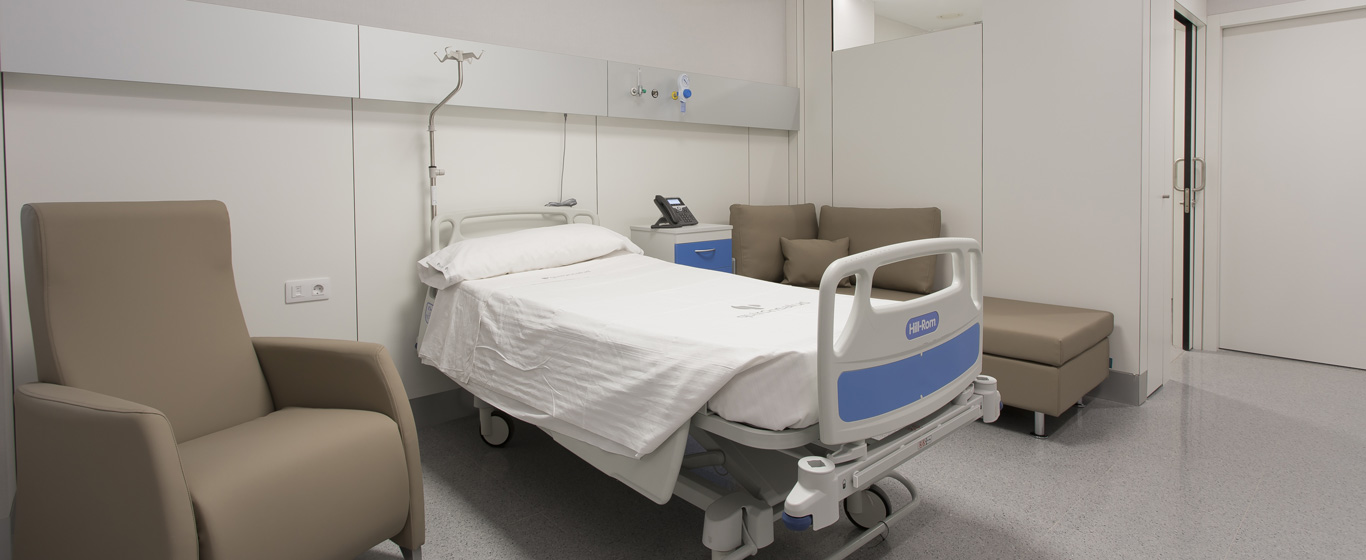Kidney Cyst
What are the characteristics of a renal cyst? Information about the causes, symptoms, and the most effective treatments for different types of kidney tumors.
Symptoms and Causes
Kidney cysts are fluid-filled sacs that form in the kidneys. Their size is variable, as they can range from small sacs a few millimeters in diameter to larger formations several centimeters in diameter.
Based on their characteristics, kidney cysts can be of two types:
- Simple kidney cysts: These are the most common. They are oval or round in shape and consist of a thin wall containing fluid inside, similar to a water balloon. They are benign in nature, meaning they pose no risk of developing into another disease.
- Complex kidney cysts: These are less common than the former. They are characterized by irregularities and solid parts inside, such as calcifications, compact walls (septa), or tissue with extra blood supply. These types of cysts require close monitoring as they can develop into cancerous tumors.
Although it is most common for them to form in the renal cortex (cortical cysts), which is the outer part of the kidney, they can also occur in the renal sinus (sinus cysts), where blood vessels, nerves, and the urinary tract are also located.
In general, kidney cysts require treatment only if the simple ones cause symptoms or, in some cases, the complex ones.
Symptoms
Kidney cysts, whether simple or complex, typically do not present symptoms. When they grow excessively, they may cause:
- Fever.
- Hematuria (blood in the urine).
- Changes in urinary habits.
- Pain in the side, back, pelvis, or stomach.
Causes
The scientific community still does not have a clear understanding of the reasons kidney cysts form. Some of the proposed hypotheses include:
- Weakness in the kidney wall.
- Dilation of renal tubules, which are small tubes that reabsorb substances filtered from the blood that are useful to the body.
- Consequences of natural aging.
- Genetic, hormonal, or environmental factors.
Risk Factors
Some of the risk factors for developing a kidney cyst, particularly of the cancerous type, include:
- Advanced age.
- Obesity.
- Diet rich in fats.
- Smoking.
Complications
Although rare, some of the complications that can arise from kidney cysts include:
- Rupture of the cyst, causing pain and, in a few cases, hematuria.
- Obstruction of urine flow.
- Kidney infection.
Prevention
Kidney cysts cannot be prevented.
Which doctor treats kidney cysts?
Specialists in urology and nephrology are trained in the diagnosis and treatment of kidney cysts. When the cysts are cancerous, clinical oncology, urology, or interventional radiology specialists become involved.
Diagnosis
Since kidney cysts are generally asymptomatic, they are often diagnosed during procedures conducted for other reasons. For example:
- Imaging tests: Ultrasound, MRI, or CT scans show the presence of these formations in the kidney and their condition.
- Renal function tests: Once the cyst is detected, these tests are used to determine if kidney function is affected.
Treatment
In most cases, kidney cysts do not require treatment, as they typically do not interfere with kidney function or the patient’s quality of life. However, periodic follow-up is recommended to monitor their progression.
When they cause symptoms or interfere with the normal function of the kidneys, one of the following treatments is usually recommended:
- Cyst drainage: The fluid is extracted from the cyst and the sac is filled with a solution that promotes healing.
- Laparoscopic surgery to remove the cyst completely: This approach is used for very large simple cysts and, more commonly, for complex cysts.
In cases where cancerous tumor markers are detected, the most appropriate type of therapy will be considered for each case, which may include chemotherapy, radiofrequency ablation, or other approaches.





















































